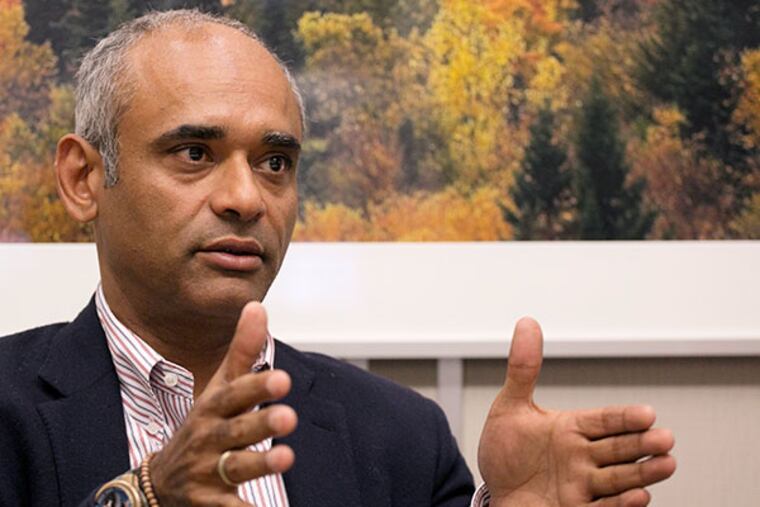Aereo case could cause havoc for TV networks
It could be one of the biggest court cases in the television industry in years, or a narrowly decided case affecting only the survival of a small New York-based streaming company.

It could be one of the biggest court cases in the television industry in years, or a narrowly decided case affecting only the survival of a small New York-based streaming company.
The showdown at the U.S. Supreme Court involving ABC, CBS, NBC, and Fox against Aereo Inc. is scheduled for oral arguments Tuesday.
Both sides have waged national public relations campaigns in recent days.
The legal issue, in its simplest form, is whether the justices will view Aereo's technology as the equivalent of many tiny rooftop antennas, or as an integrated TV system that needs to pay fees for the over-the-air TV signals it retransmits. A decision is expected this summer.
"You can definitely see the parties are fighting over the metaphor, or the analogy," said Jonathan Band, a lawyer who represents the nonprofit group Center for Democracy and Technology, which filed a brief in the case.
"It seems to me the critical issue here is a factual one: Who makes the copies, and who does the transmitting to the users?"
Aereo, led by Chet Kanojia, a native of Bhopal, India, was launched as an alternative to cable TV. Aereo assigns each subscriber a dime-size antenna in a warehouse. The subscriber then tells the antenna which TV signal it should capture and stream to a laptop or smartphone over the Internet. Technically, Aereo says, subscribers control their own TV antennas as they would one on their house.
Aereo, which is based in SoHo in Lower Manhattan and has operations in Brooklyn and about a dozen cities, claims the technology satisfies U.S. law and could be used as a platform as a next-generation pay-TV service.
Because over-the-air TV stations are viewed by millions, Aereo subscribers could package the service with Netflix or other entertainment services and avoid the use of cable television to watch the major networks.
Among Aereo's supporters is a group of 36 intellectual property and copyright professors who filed a brief. David G. Post, a Temple University law professor, is the group's counsel of record.
Post said Monday, "It's a difficult case. I think it's up in the air. It could go either direction. It is hard to predict. This case does not fall along normal ideological lines."
The TV networks say Aereo's service violates copyright laws and amounts to stealing.
In their briefings, the networks say the Aereo service "is precisely the kind of unauthorized exploitation of copyrighted content that federal law is designed to prevent. Aereo is engaging in copyright infringement - theft - on a massive scale."
If Aereo is legalized, TV networks fear losing hundreds of millions of dollars in retransmission fees paid by cable-TV companies for their content and news.
The U.S. Department of Justice has filed a brief in support of the TV broadcasters.